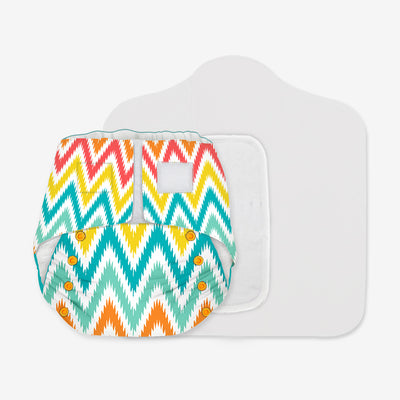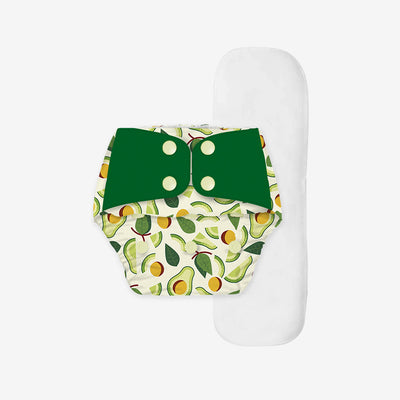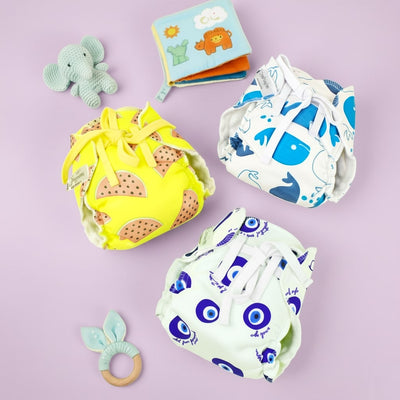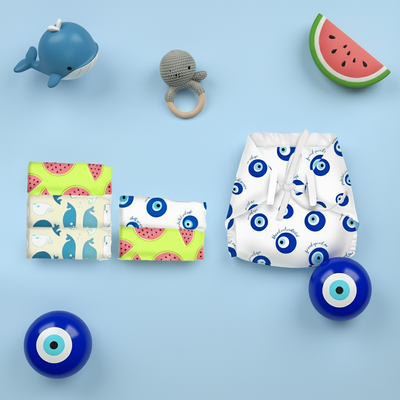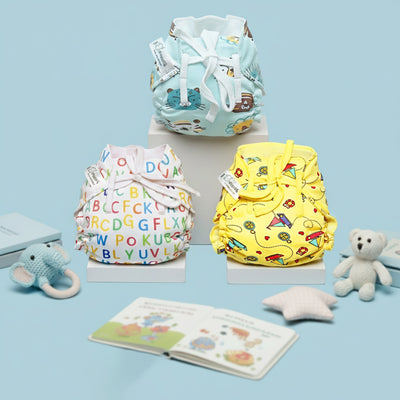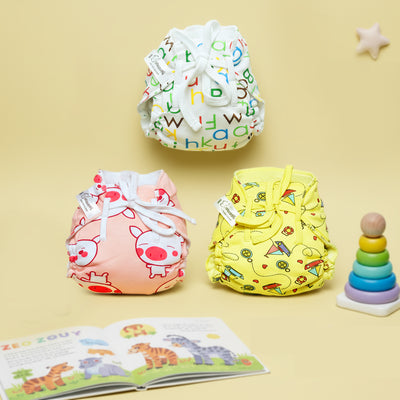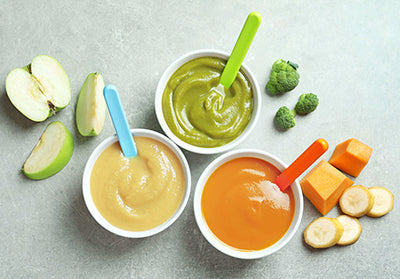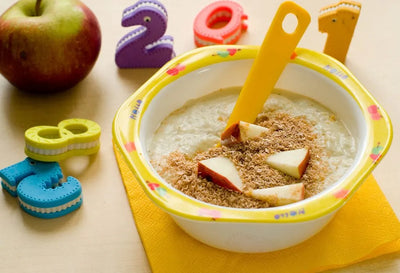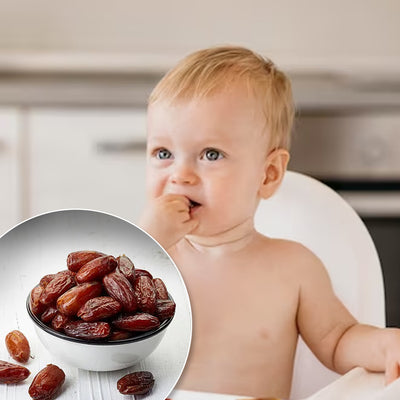Baby Poop Color Types: What They Can Tell You About Their Health

Bringing a new baby into the world is a joyous occasion, but it also comes with its fair share of questions and concerns, especially for first-time parents. One topic that often perplexes new parents is baby poop colors. It may not be the most glamorous aspect of parenthood, but it's a crucial indicator of your baby's health and well-being. In this comprehensive guide, we'll explore the different colors and consistencies of baby poop and what they can reveal about your baby's health. So, let's dive into the world of baby poop and decipher its mysteries
What Does Your Baby's Poop Color Say About Their Health?
The poop colors in newborns can provide valuable insights into their health. It's important to note that some variations in color are perfectly normal, while others may signal an underlying issue. Let's delve into the significance of various poop colors
1. poop color black in baby:
poop color black in infants, often referred to as meconium, is usually the first type of stool your baby will pass. It is thick, sticky, and black or dark green in color. Meconium is made up of substances that your unborn child absorbed in the womb, including amniotic fluid, mucus, and skin cells. After a few days, your baby's poop will transition to a different color, typically mustard yellow.
2. Mustard Yellow Poop in Babies:
Mustard yellow poop is the standard color for breastfed or chestfed babies. This color indicates that your baby is getting the valuable colostrum and mature milk they need. It's soft and seedy in texture, which is perfectly normal for breastfed infants. The yellow color comes from bilirubin, a pigment produced when red blood cells break down.
3. Bright Yellow Poop in Babies:
As your baby continues to grow and develop, their poop may become more vibrant in color. Bright yellow poop is a sign of a healthy digestive system, as it suggests that your baby is efficiently processing the nutrients from breast milk.
4. Orange Red Poop in Babies:
Seeing shades of orange or red in your baby's poop may be startling, but it can be linked to their diet. If your baby has consumed orange or red foods like carrots, sweet potatoes, or beets, it can temporarily affect the color of their poop. However, persistent red stools should be discussed with a pediatrician to rule out any potential issues.
5. Dark Green Poop in Babies:
Dark green poop can be normal for both breastfed and formula-fed babies. It's often a result of the iron content in infant formula. However, if the green color is accompanied by other concerning symptoms, like diarrhea or fussiness, consult your pediatrician.
6. White Poop in Babies:
White or pale-colored stools in infants can be a cause for concern, as it may indicate a problem with the liver or bile ducts. This situation requires immediate medical attention. White stools could signify a lack of bile, which is essential for digesting fats.
7. Gray Poop in Babies:
Gray or clay-colored poop is also a concerning sign. It can indicate a problem with bile production or flow. This condition requires prompt evaluation by a healthcare professional as it might suggest a liver or gallbladder issue.
Newborn Poop Consistency
During the first few days of life, newborn poop consistency is typically meconium, which is thick, sticky, and dark greenish-black. This is a result of your baby expelling substances they ingested while in the womb. As your baby transitions to a regular diet, their poop will gradually change in consistency.
1. Breastfed or Chestfed Consistency:
Breastfed or chestfed babies often have mustard-yellow, seedy poop. It's usually loose and can resemble a grainy or cottage cheese-like texture. Breast milk is highly digestible, which contributes to this consistency. Expect a wide range of shades within the yellow spectrum, and don't be alarmed by the occasional green tint, which can be due to factors like hindmilk-foremilk balance.
2. Formula-Fed Consistency:
Formula-fed babies tend to have poop that's a bit firmer and paste-like compared to breastfed infants. The color can vary but often falls within the brown spectrum. Formula milk contains different nutrients than breast milk, leading to differences in consistency and color.
3. After Introducing Solids:
Once your baby starts eating solid foods, their poop will become thicker and more formed. It may have a wider range of colors, depending on the foods they consume. Be prepared for some surprises in the diaper as they explore various foods – some of these can affect poop color (e.g., green with spinach or orange with carrots).
4. Diarrhea:
Diarrhea in babies is characterized by frequent, loose, watery stools. It can be caused by infections, food sensitivities, or antibiotics. Dehydration can be a concern with diarrhea, so it's essential to monitor your baby closely and consult your pediatrician if it persists.
What If You See Blood in Stool?
The presence of blood in your baby's stool can be due to various factors, such as milk protein allergies, anal fissures, or gastrointestinal issues. It's essential to seek immediate medical attention to determine the cause and initiate appropriate treatment.
How Often Should Babies Poop?
From newborn to baby, the frequency of bowel motions varies.. In the early weeks, it's common for breastfed babies to have several bowel movements a day, while formula-fed infants may have fewer. As babies grow, their bowel habits change, and some may poop only once every few days. What's essential is that your baby's poop should be soft and easy to pass without signs of discomfort or distress. If you have concerns about your baby's poop frequency or consistency, consult your pediatrician for guidance tailored to your child's unique needs.
Understanding poop colors in newborns is an essential aspect of caring for their health and well-being. While it may seem overwhelming at first, this guide should help demystify the world of baby poop. Remember that variations in color and consistency are often normal, but it's crucial to consult your pediatrician if you ever have concerns about your baby's poop.

